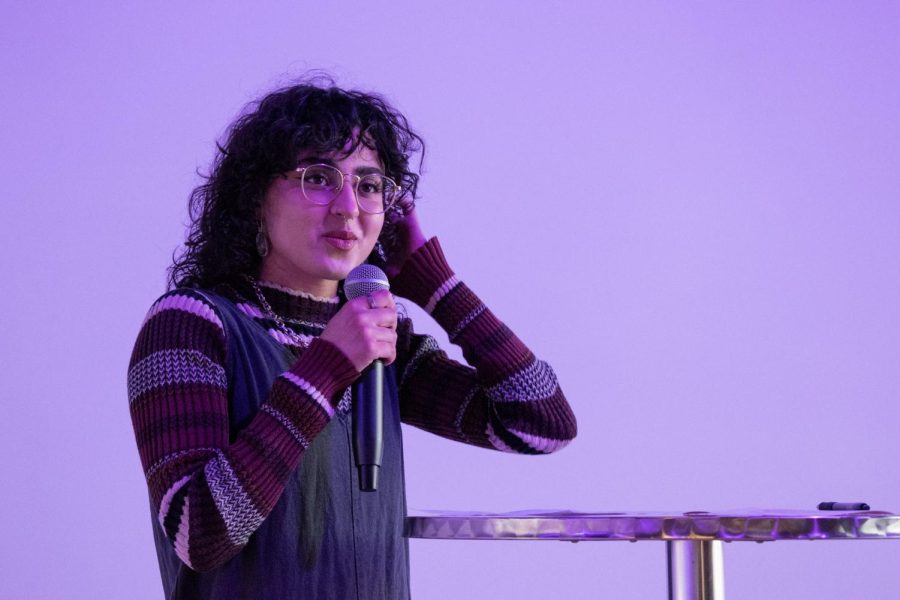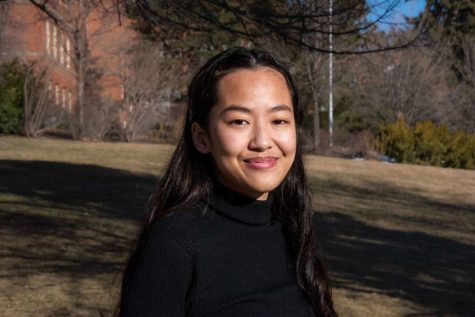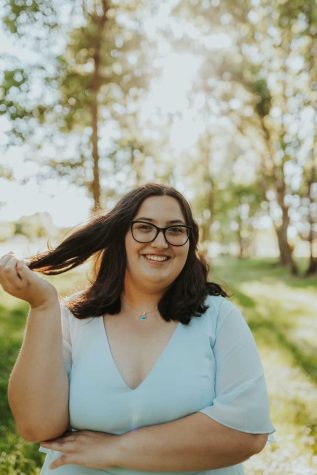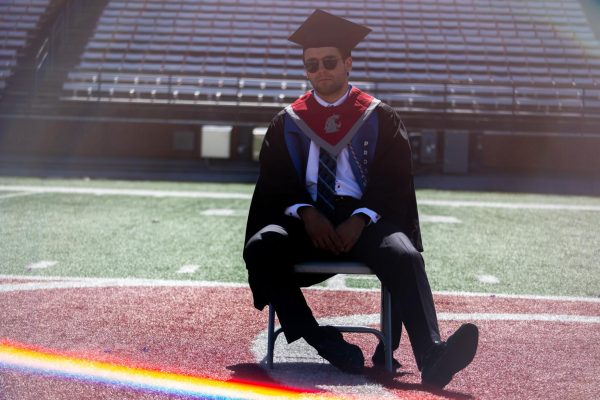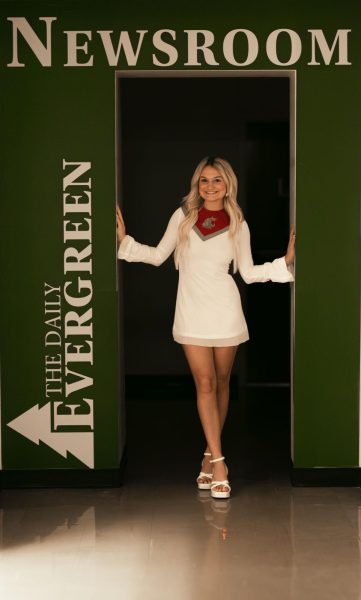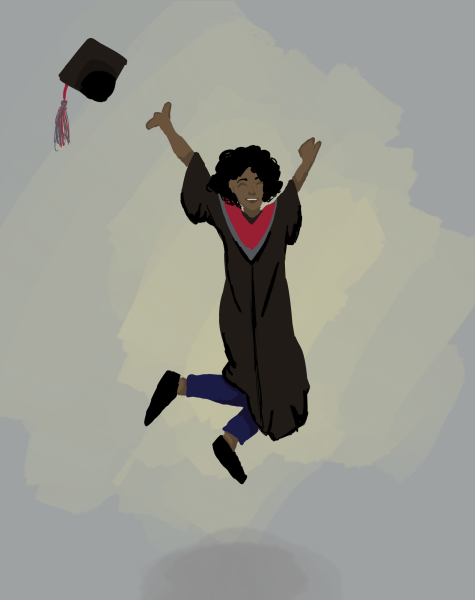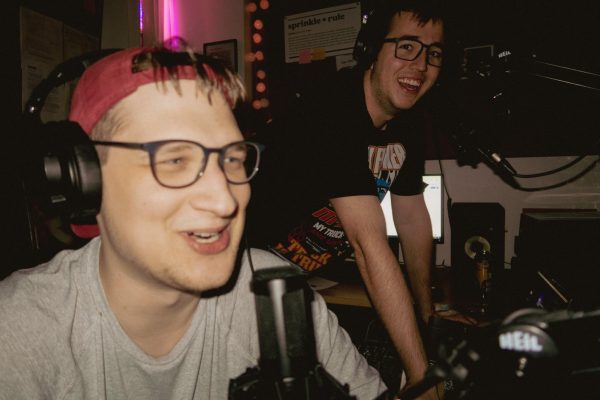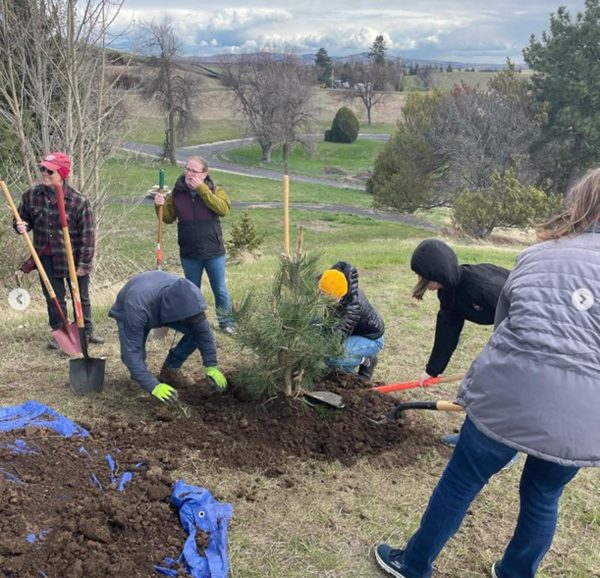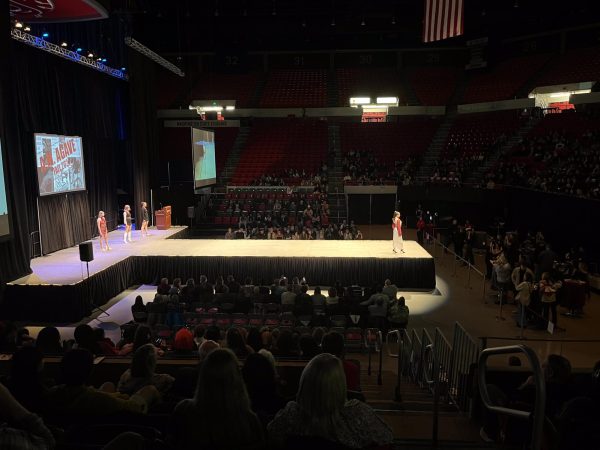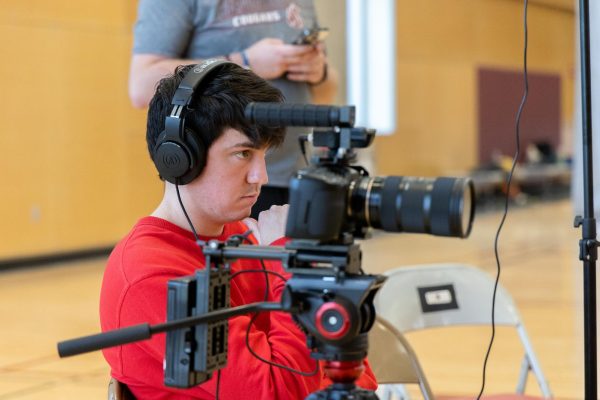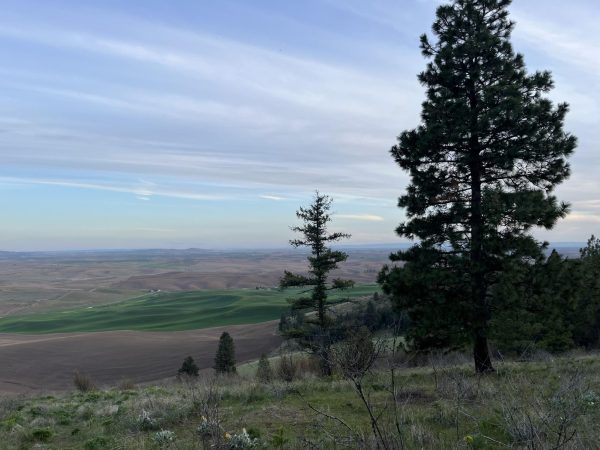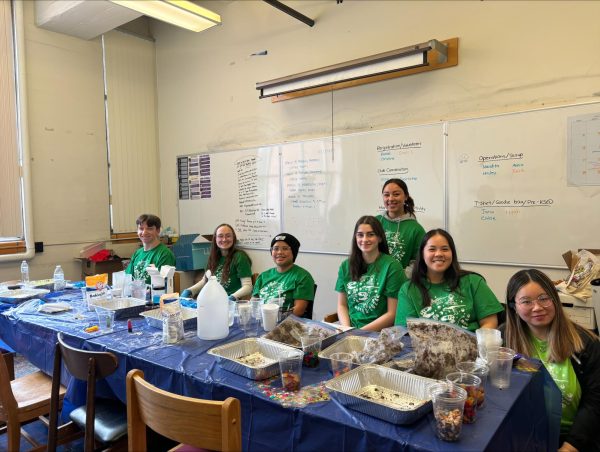An hour of poetry for the National Day of Racial Healing
Students, faculty and audience members alike read poems at the Jordan Schnitzer Museum of Art
Eman Ahmed, Outstanding Senior Award winner, reading an original poem
January 19, 2023
Students, faculty and audience members joined together on the National Day of Racial Healing for an hour of poetry readings from 1:45–2:45 p.m. on Jan. 17 at the Jordan Schnitzer Museum of Art.
Among those that read were Campus Civic Poet Award winners and finalists, editors at student-led creative writing publications and creative writing students and faculty.
The poems included both original and non-original works written by authors like Maya Angelou and Francisco X. Alarcón. Many poems had also been published in the WSU-supported Blood Orange Review.
“[The National Day of Racial Healing] is a day to really think about how racism has affected us and continues to affect us,” Kristin Becker, chair of the programming subcommittee for the National Day of Racial Healing, said at the beginning of the event. “But also a day to have conversations, to reflect and hopefully start to heal, to move toward a better future.”
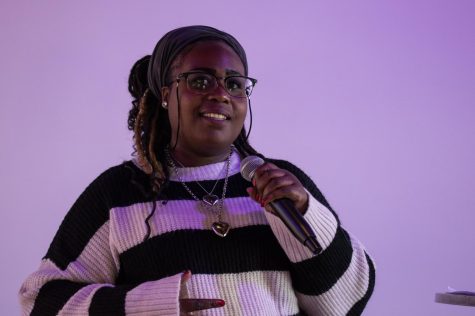
A member of the audience reading poetry during the open mic section of the event.
After Becker spoke, Allyson Pang, a Campus Civic Poet Award winner, read “Tangled (and Not the Rapunzel Kind),” a poem she said she wrote about being mixed Chinese, native Hawai’ian, Filipino and Portuguese.
Following Pang was Joel Kemegue, another Campus Civic Poet award winner, who read two poems from his “Afrocentric Studies” series: “Afrocentric Studies: Overview” and “Afrocentric Studies: Geography.” Kemegue said the series was about his thoughts on being Black, anywhere in the world.
After Kemegue, Outstanding Senior Award winner Eman Ahmed and Campus Civic Poet Award finalist Jada Rome also read original poems.
“We wanted to celebrate student authors at WSU,” Cameron McGill, event organizer and creative writing professor, said. “We wanted to highlight student authors in all the ways that we could … and to highlight those voices.”
Then McGill began the open mic, encouraging audience members to read poems and/or excerpts of creative writing as well.
Linda Russo and Bryan Fry, both event organizers and creative writing professors, read during the open mic. Pang also read “Unfortunate Times to Have a Racial Identity Crisis,” another one of her poems.
Most of the speakers during the open mic were members of the audience.
“Sometimes people who haven’t been to these kinds of readings don’t think that they need them in their life,” McGill said. “And then they go to them and they realize it’s something that really speaks to them … and that it’s another means of expression and community. Sharing poems I think is particularly good at doing both those things.”
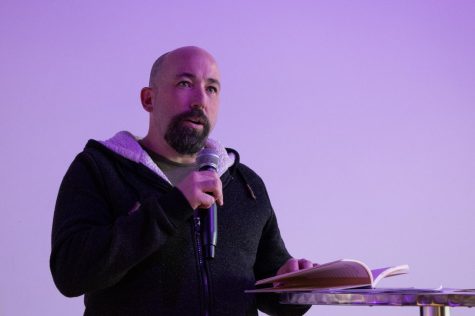
Bryan Fry, event organizer and creative writing professor, reading poetry during the event.
Toward the end of the event, audience members also had the opportunity to use a historic letterpress lent by Holland and Terrell Libraries’ Manuscripts, Archives and Special Collections to print their own copy of Ross Gay’s poem “A Small Needful Fact.” McGill read “A Small Needful Fact” during the open mic.
WSU’s National Day of Racial Healing Pledge states that “racial healing will occur through … somatic practices,” which are actions people do that involve their physical bodies, like letterpressing and reading poetry.
“I think what we just did here today was pretty good somatic practice,” Becker said at the end of the event.

